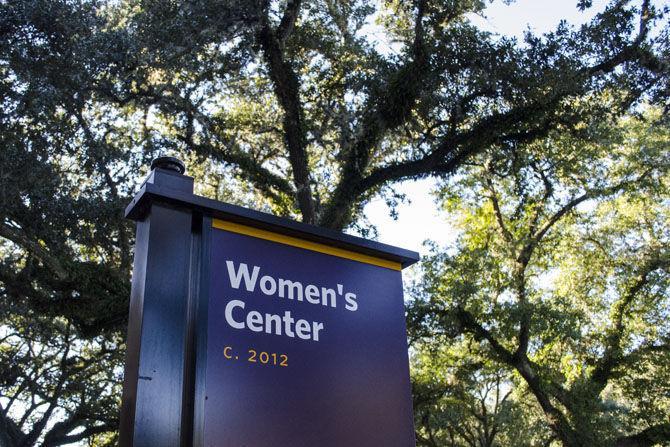The LSU Women’s Center has big plans for this year’s Women’s History Month. So far, discussions on sexual assault, empowerment through “Wonder Woman” and panels on the #MeToo movement have taken place, gearing up to a big ceremony honoring the accomplishments of women throughout Louisiana.
Summer Steib, director of the Women’s Center, talked about the inspirations for this month’s events, which included serious conversations about justice and rape, seen in the panel discussion of the documentary “I am Evidence,” about the large amount of untested rape kits. Steib said this year focused on overcoming difficulties.
“The theme for this year’s Women’s History Month is ‘Nevertheless she persisted,’” Steib said. “So we’re trying to do events around campus that reflect that theme and incorporate that theme and celebrate women who persisted in various different means and mechanisms.”
The Women’s Center has also been trying to spread awareness of campus resources such as the Lighthouse Program and other outreach programs designed to aid women. Steib said that their goal wasn’t to blame people, but to make sure that everyone knew how to get help.
“Looking at what’s happening with that national conversation on sexual harassment and what’s happening here on our campus,” Steib said. “Not so much in terms of trying to expose or witch hunt, but making sure people know what resources are available to them.”
According to Steib, Louisiana was once again ranked the worst state for women by WalletHub, a personal finance website. The ranking was based mainly on two factors: women’s economic and social well-being, and women’s healthcare and safety. While these results are discouraging, Steib remains determined to make a difference.
“We have a lot of work to do in Louisiana,” Steib said.
On the LSU campus, that work takes the form of investigating inequalities such as a possible wage gap and holding conversations about the campus’ social climate, which Steib is cautiously optimistic about.
“I think that there are a lot of exciting things that are going on right now at LSU that also reflect larger conversations about where women are,” Steib said.
This sentiment is reflected by Fallan Frank, the graduate assistant for African American Student Affairs and one of the administrators for the Women’s Empowerment Initiative, a program designed to help women of color on campus, which began in the fall.
Frank said the initiative usually meets every month, focusing on different issues every time. The initiative promotes the social, academic and mental needs of women of color. While it’s an open program right now, next year, it will probably switch to being member-based.
“So far, we implement a program every month. Issues we’ve discussed are economic empowerment, identity development, colorism, mental health awareness, relationships,” Frank said. “Also physical awareness, where we focus on breast cancer awareness, because that’s the leading cause of death for women, black women especially.”
The Women’s Empowerment Initiative collaborates with the Women’s Center, and the two usually have some overlap with events. Women’s History Month is one of those areas.
“Women empowerment is definitely something that’s needed on this campus, not just for women of color, but women in general,” Frank said. “We are grateful to have resources like the women’s center as well to help support other women on campus.”
Frank emphasized the importance of collaboration and advocated for year-round recognition of women’s rights and accomplishments.
“I would definitely tell people to support the Women’s Center any way that they can because we shouldn’t just be confined to one month,” Frank said. “We should celebrate women all year.”
LSU organizations use Women’s History Month to empower women through various events, programs
By Rachel Mipro
March 14, 2018
Sigma Gamma Rho holds a bra drive at LSU Women’s Center on Monday, Jan. 29, 2018 for victims of sex trafficking.
More to Discover










